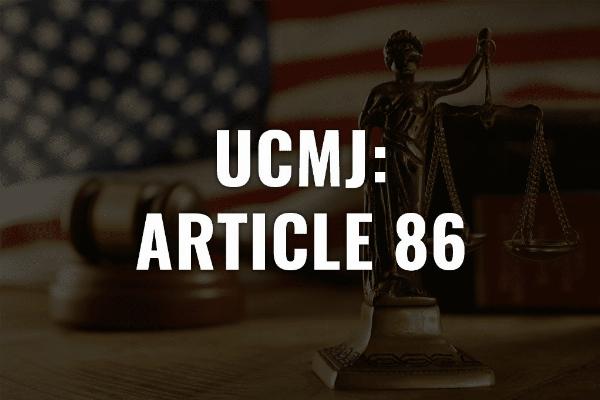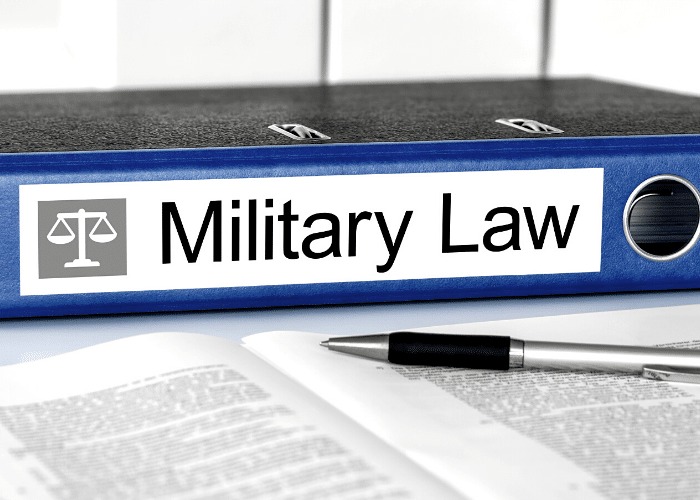UCMJ Article 91: Understanding Insubordination and Its Consequences in the Military

Discipline, hierarchy, and obedience to lawful authority are the cornerstones of an effective military organization. Within the Uniform Code of Military Justice (UCMJ), various articles exist to enforce this order. One of the most critical among them is UCMJ Article 91, which addresses insubordination toward warrant officers, noncommissioned officers (NCOs), and petty officers. Violating this article can lead to serious disciplinary action, potentially affecting a service member’s career, reputation, and freedom. This blog explores what UCMJ Article 91 entails, the types of offenses it covers, and the consequences of noncompliance.
What Is UCMJ Article 91?
UCMJ Article 91 criminalizes acts of insubordination directed at warrant officers, NCOs, and petty officers. The article applies to all enlisted members of the U.S. Armed Forces and is designed to protect the authority and respect due to superior officers, who are vital to maintaining discipline and command structure.
Specifically, Article 91 prohibits:
- Striking or assaulting a warrant, noncommissioned, or petty officer
- Disobeying a lawful order from such an officer
- Using disrespectful language or behavior toward such an officer
The emphasis is on preserving the authority of military leaders and ensuring a functioning chain of command.
Types of Offenses Under Article 91
There are several ways a service member can violate UCMJ Article 91, including:
1. Disrespect
This can be verbal (such as insults or sarcastic remarks), written, or expressed through gestures or conduct. It must be intentional and directed at an officer in the line of duty.
2. Disobedience
Refusing to carry out a lawful order issued by a warrant officer, NCO, or petty officer constitutes a direct violation. The order must be lawful and within the scope of the officer’s authority.
3. Assault
Physically attacking a superior officer is among the most serious violations. Even threatening physical harm can trigger an Article 91 charge.
Each of these behaviors undermines military cohesion, morale, and operational effectiveness, and is therefore treated with utmost seriousness.
Elements Required for a Conviction
To convict someone under UCMJ Article 91, the prosecution must prove:
- The accused was subject to the UCMJ at the time of the offense
- The victim was a warrant officer, NCO, or petty officer
- The accused knew of the victim’s rank and status
- The accused committed the act (disrespect, disobedience, or assault)
- The officer was performing official duties at the time (for disrespect or disobedience charges)
These elements must be proven beyond a reasonable doubt in a court-martial proceeding.
Potential Punishments
The penalties for violating Article 91 can vary depending on the severity of the offense and whether it occurred during wartime. Possible punishments include:
- Reduction in rank
- Forfeiture of pay and allowances
- Confinement for up to 10 years (in severe assault cases)
- Dishonorable or bad conduct discharge
Even minor infractions can lead to administrative actions or non-judicial punishment, which can hinder promotions and security clearance renewals.
Defenses Against Article 91 Charges
Several defenses may be available in an Article 91 case:
- Unlawful order: If the order was illegal or beyond the scope of authority, the refusal to obey may be justified.
- Lack of intent: Disrespect must be intentional; accidental behavior or miscommunication may be defensible.
- Self-defense: In assault cases, if the accused can show they acted in self-defense, charges might be reduced or dropped.
- Mistaken identity: Eyewitness errors or unclear evidence may lead to wrongful accusations.
Legal representation is critical in these cases, as military law is highly specific and complex.
Note: IndiBlogHub features both user-submitted and editorial content. We do not verify third-party contributions. Read our Disclaimer and Privacy Policyfor details.







